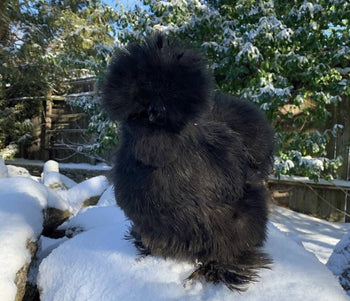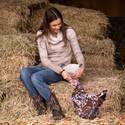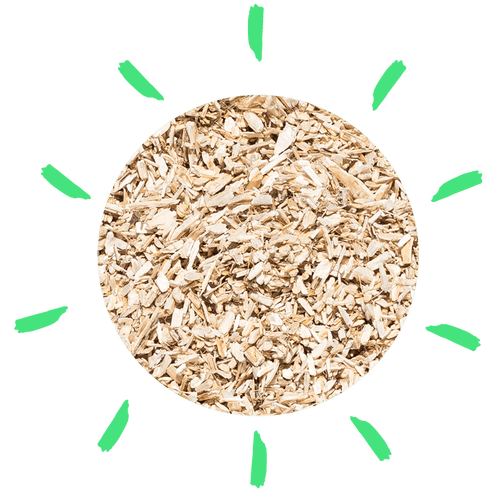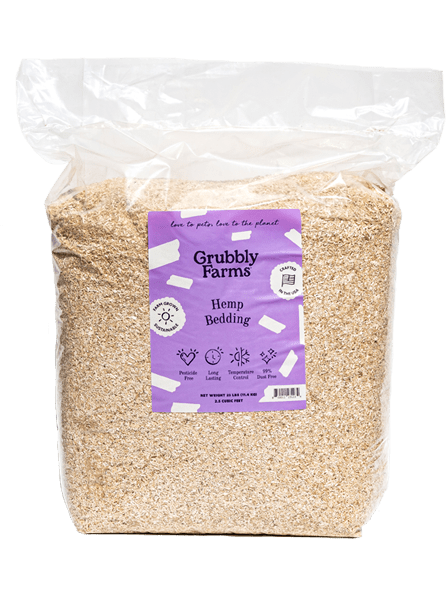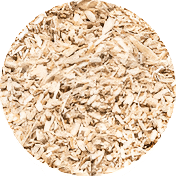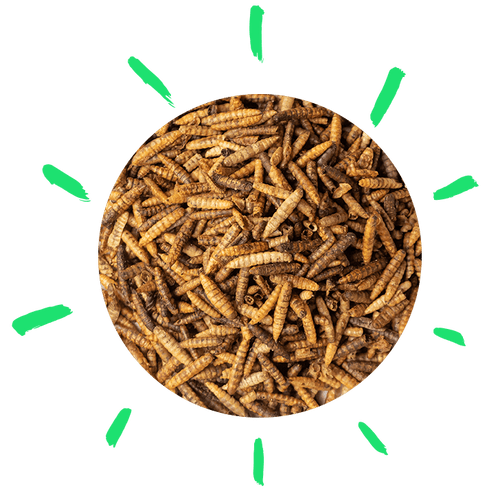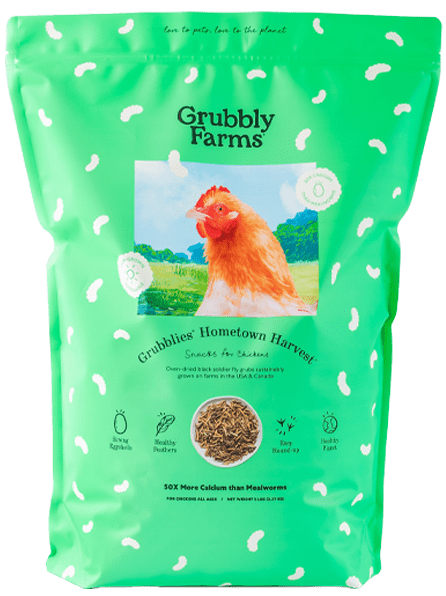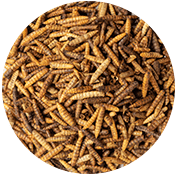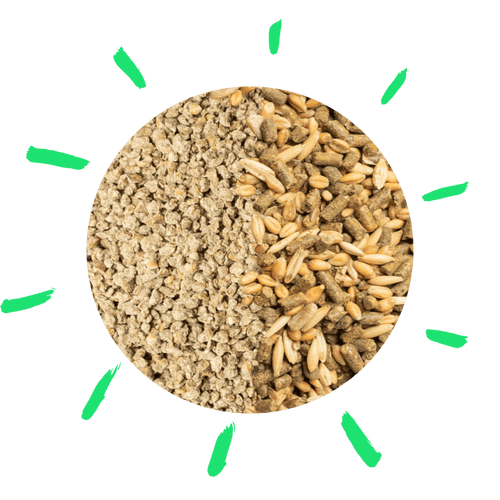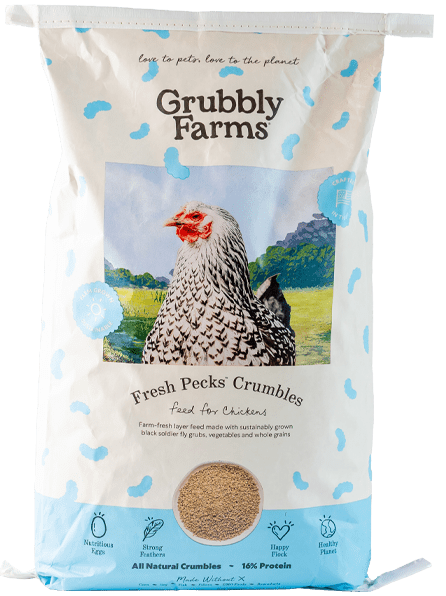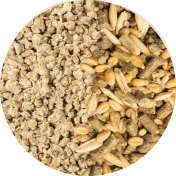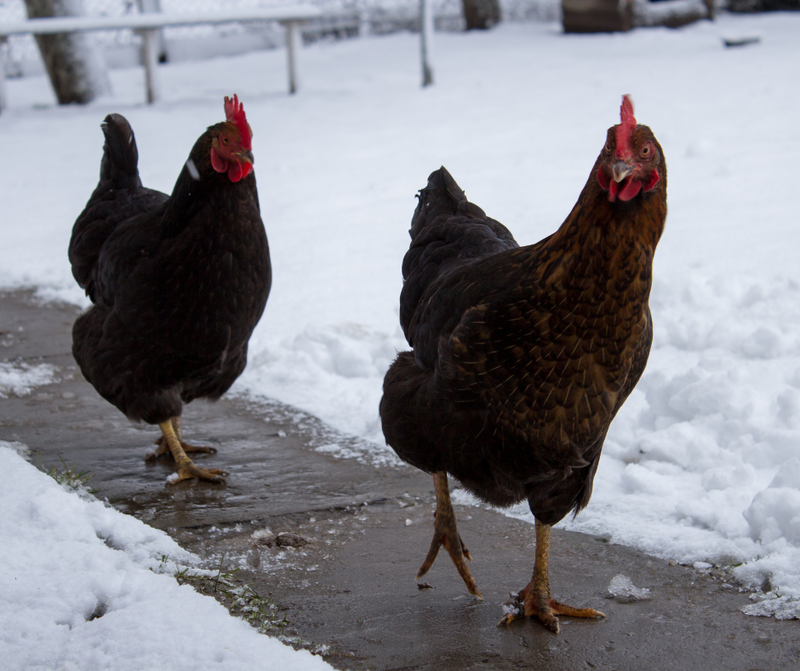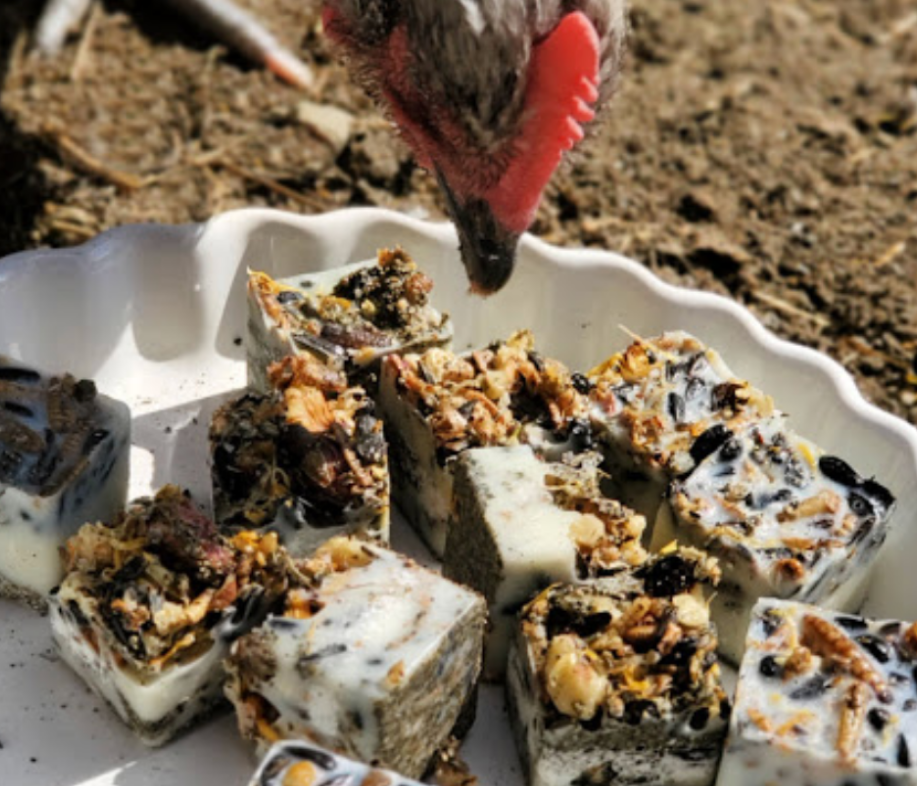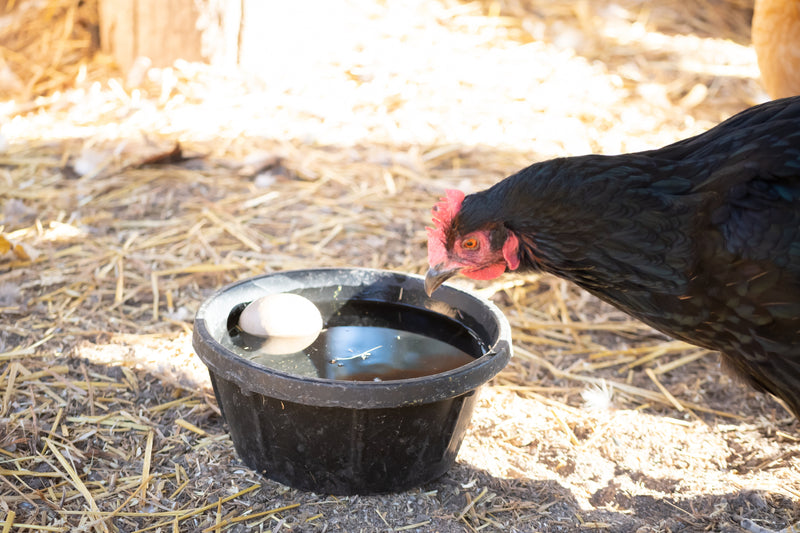With cold weather upon us, it’s important to make sure that your chickens stay safe and warm! They may have lots of feathers, which helps insulate them, but they can get cold too. In some cases, it can get dangerously cold for them, and they can experience horrible things like frostbite. To help keep your chickens safe, we have some tips to help you winterize your coop and prepare your chickens for cold weather, no matter where you live.
Winterizing Your Coop
There are some easy ways to winterize coops and help your feathered babies stay warm at night. They may fluff themselves up and snuggle a little closer on the roost for extra warmth, but there are also things you can do:
In Warmer Climates
If you live in a warmer climate, you probably have coops with larger ventilation holes, or even entire walls clad in hardware cloth (because lots of ventilation and aeration is necessary in the summer to avoid heat exhaustion).
In those warmer climates, there are still some days and evenings filled with chilly, sharp winter winds and rain. To protect your chickens in the coop, hang tarps to block the wind, but try not to completely seal the coop because it’s still important to have ventilation and air flow.
In Colder Climates
If you live in a colder climate, it’s likely that your coop will have mostly solid walls. Check your coop for holes and cracks and make sure you patch them to prevent drafts.
It may also be necessary to insulate the coop to keep in as much heat as possible. One easy way to insulate, and ward off drafts is to stack extra bales of straw in the coop, along the perimeter.
Proper ventilation is still necessary and very important.
Read our full blog on winterizing your coop.
Can Chickens Get Frostbite?
When your chickens breathe, they release moisture into the air. Moisture, combined with freezing temperatures in the coop can lead to frostbite. You do NOT want your chickens to get frostbite. They sadly can lose their combs, waddles, feet, or their lives as a result of frostbite!
What Causes Frostbite in Chickens?
Frostbite can occur to nearly any creature. As the name implies, when flesh is exposed to lower temperatures, the fluids within the cells freeze. The most vulnerable areas are those that are exposed to the elements without insultation--which is why feet, combs, and waddles are the first areas to be affected.
When the fluids--mostly blood--freeze or slow down to prevent healthy blood circulation, the cells become starved of oxygen. This damages the cells permanently.
At What Temperature Can Chickens Get Frostbite?
There are a lot of factors that go into calculating a flock's risk for frostbite. These elements include:
- Ambient temperature: Single digits (Fahrenheit) and sometimes in the teens
- Sun exposure
- Length of time in elements
- Humidity & dampness of bedding
- Wind chill
- Altitude
- Air circulation
Read our full blog on preventing your chickens from getting frostbite.
Preventing Frostbite & Keeping Your Flock Warm
You can also opt to run heaters during certain conditions (such as below-freezing temperatures). Heaters should be mounted safely so that they can’t be perched on or knocked down by chickens. There are special heating plates designed for raising baby chicks or heating a coop.
If you use other heaters, like space heaters, please pay extra attention to safety. Running electricity and heaters in a coop can pose a fire risk, especially if you aren’t careful. If you run electricity, make sure you take the necessary safety precautions. Don’t leave any wires exposed, and adhere to your municipal building codes for running electricity to outdoor structures and settings.
Sweater weather? Winterizing your birds unfortunately does not mean adorable little sweaters. Yes, these sweater are adorable, and it's hard not to smile at those memes circulating around the internet, too. However, they do not need sweaters and it can sadly cause stress to your feathered family (and be very painful if they're still molting).
Instead of focusing on keeping your chickens dressed to impress, consider keeping their coop conditions and run winter-ready. Feeding your chickens a diet that will keep them warm and toasty can also go a long way during winter lows.
Winter Feeding & Snacking: Keeping Your Chickens Warm
In the winter, continue to feed your chickens fully balanced layer feed with minimum waste (low dust), such as Grubbly Fresh Pecks. It's crucial that your flock gets the best nutrition, especially during extreme temps.
Supplement Their Diet Before Dusk for Nighttime
When the sun starts to disappear, or a little bit before they go to bed, you can feed them some extra high-protein snacks like Grubblies, some scratch, or a blend of both Grubblies and scratch.
How Do Snacks Keep Your Flock Warm All Winter?
Snacks and winter warmth may not seem logical at first. However, a before bed-time snack can really help your gals build heat.
A Full Crop
Feeding your flock a healthy snack at the end of the day will keep their crops full before they go to bed. A full crop can act as an insulator of sorts. Also, the process of digestion increases heat in the body and will help keep your chickens warm.
Carbs & Fats
Snacks like Grubblies and scratch will also give them some eggstra dietary fat and carbohydrates to keep them warm. Grubblies will provide them extra protein and calcium for feather growth, strong bones, and healthy eggs.
Protein for Feather Growth
Some chickens don’t finish their molt until well after winter arrives, and the extra protein in Grubblies will help them finish growing their feathers. Some hens will continue to lay through winter (at a less frequent rate), so the eggstra calcium in Grubblies will help your girls get the extra nutrients they need for their eggs with strong, thick shells.
How to Spoil Your Flock Before Bed
We can spoil our feathered family with healthy snacks they love. Below are some things we like to spoil them with during the winter. They’re all served warm, but not too warm (because we don’t want them to burn themselves as they gobble it up!).
The warm snacks, usually served about 1 to 2 hours before bedtime, are gobbled up in no time, and the ladies and roos are happy to have a warm crop full of goodies before bedtime.
- Warm Oatmeal (or Grits) - Make oatmeal (or grits, or other cooked grains) with some water, milk or unseasoned soup stock. Top the oatmeal with a generous portion of Grubblies, along with some sunflower seeds and raisins.
- Spaghetti and Grub-balls - Cook up a bit of whole-wheat noodles according to package instructions, and toss in some cherry tomatoes and raw chopped garlic. Then top the noodles with some Grubblies mixed with some peanut butter. (Technically, we don’t make the grubs and peanut butter into balls, but you can if you want.)
- Loaded Baked Potato - Start by baking potatoes until they are cooked through. Then split each potato open and add a dollop of yogurt, and dress it up with some shredded squash and/or greens, and instead of bacon bits, top it off with lots of Grubblies!
If it snows where you live, you may need to shovel snow in your chicken run. Or, if they free-range, you will need to shovel snow to create a path for the chickens, and create a snow-free hang-out area for them. The chickens will need a snow-free area to roam and exercise to prevent boredom and depression amidst winter gloom. If they walk on ice and snow, they could end up with frostbite on their feet.
When you need help getting your flock from one area to another, a daily healthy snack is essential. The moment your flock sees their Grubblies or hears you shaking it, they'll run over to you.
How to Avoid Frozen Water
Freezing temperatures can lead to freezing waterers, which can be a major concern for your flock. They will need access to water daily. So, you will have to do a little extra work to make sure their waterers don’t freeze.
Here are some tips and options to prevent their waterers from freezing:
- Refill waterers daily, preferably with warm (tepid) water and dump them out every night. Your chickens won’t need to drink when they're sleeping. While adding salt may be tempting, there are other options that won't risk dehydrating your birds.
- Use a large black tub for water, because the color black will absorb and retain heat from the sun, and a larger surface area slows the freezing process.
- If you have access to outdoor electricity, use a heated water bowl. Use caution and adhere to local codes when running electricity outdoors. You can also use a heated dog water bowl.
- Place waterers on cement pavers in a sunny spot, and build some sort of insulation around the waterer. The insulation will help keep the waterer warmer, and the cement pavers will absorb and retain some heat.
- Another easy trick is to attach a string from the top of the coop into the water with a small weight at the end (a small stick or wooden dowel works well). Even with the slightest breeze (from the bottom of the coop to the top), the string will move, swirling the water around to keep it from freezing. You can play around to see what works best. You can also try using ping pong balls, but this seemed to work better.
Keep Your Flock Warm & They'll Repay You in the Spring!
Keeping your flock warm and free of frostbite will keep your chickens healthy, happy, and ready for a productive spring. Remember to provide your gals with extra enrichment as the days shrink, keep their coop warm and ventilated, and prevent frostbite by shoveling away snow in your gals' favorite areas.
And at last, here’s a warm thank you for being such a great chicken parent and helping learn tips to help your fluffy ones through the colder months!





